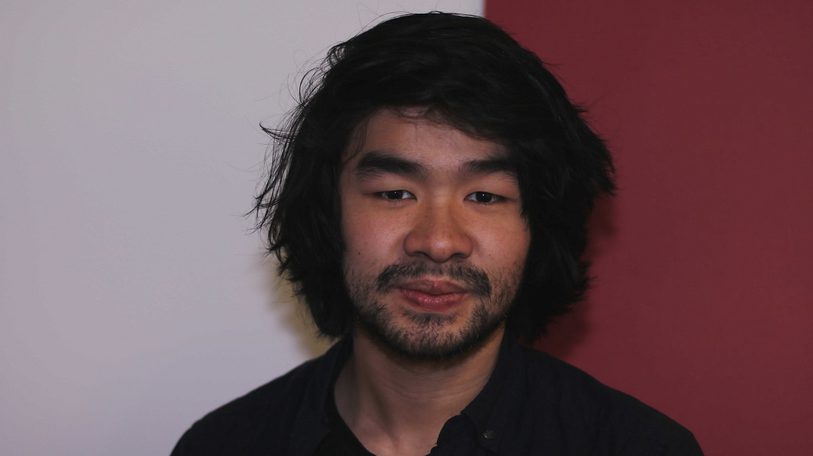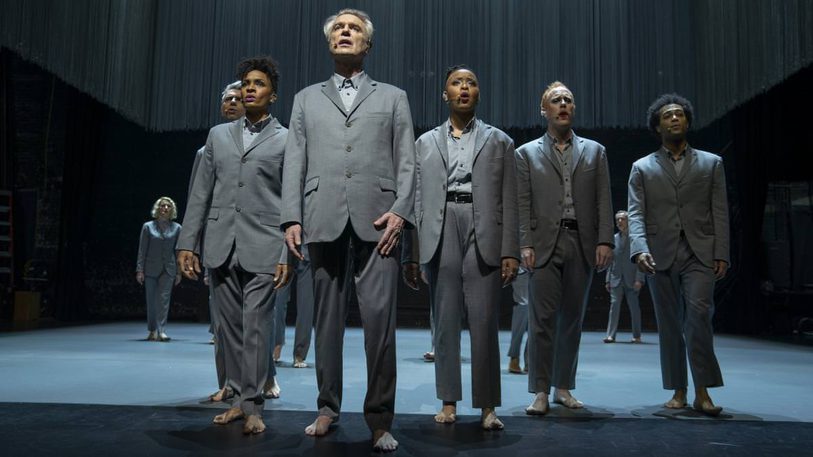News Story

David, member of Film London's Equal Access Network
David, a member of Film London's Equal Access Network, viewed David Byrne’s American Utopia as part of the BFI London Film Festival. Here he shares his thoughts on the film as well as his journey into the film industry.
For the last two years I have been navigating my way through the TV/Film industry, slowly making my way into junior TV Drama positions. I joined the Equal Access Network through the advice of a very kind mentor when I was interning, who explained how supportive and helpful the Equal Access Network were in helping new entrants, like myself at the time, get a footing in the industry!
All that has proved true. The Equal Access Network has been filled with so many opportunities that have taught me everything from script reading to running in a writers’ room. Undoubtedly, the experience and support gained from the wonderful team has been extremely useful as I make my first steps through the TV industry!
There are also great opportunities outside of careers, such as workshops and screenings – and I was fortunate enough to watch David Byrne’s American Utopia as part of the London Film Festival.

David Byrne’s American Utopia, dir. Spike Lee
I was impressed by the variety of music – there are acapella renditions, songs with crisp raw percussion mixing with electronic synths and powerful covers (more on that later). There’s no additional playback or backing tracks, “Everything is played by this incredible band” Byrne proudly announces. The emphasis on musicianship is commendable – each and every musician performs enthusiastically on stage with Byrne, in the same grey suit and with the same bare-feet.
This creates a minimalistic, natural atmosphere, an artistic choice where Byrne chooses to eliminate all but the humans on stage to allow us to connect with them more. Spike Lee’s direction gives character to this simplistic, flat space, shooting cinematically through the links of chains surrounding Byrne. Lee also uses some stunning top-down shots to emphasise the doorways of light highlighting the artists. Particularly at the start it’s easy to forget there’s a live audience watching in the theatre alongside digital viewers as the camera swoops across the stage, allowing us to cohabit this space with the energetic musicians.
However, Byrne does not forget his theatre audience, not at all. Between his songs, he waxes philosophical to them, talking about how a high school covered his song and made the theme more hopeful, and how important he feels it is to vote. The flow is too rehearsed to feel stream-of-conscious, and there’s no particular narrative holding these mini-monologues together, so at times these moments feel disconnected from each other.
However, what joins them together is theme. Somehow it starts with Byrne holding a plastic brain, wondering how babies can have more neural connections than adults, and ends with one of the final songs being a show-stopping, powerful cover where he asks the audience to repeat the names of African Americans killed in America. Byrne links these two moments with the hopeful idealism that even though we may lose neural connections as we grow up, perhaps those connections become instead “between us and other people”. This call for unity in divided times is a utopian vision, for sure, and it just about earns its poignant conclusion even if for me it didn’t always flow smoothly.
That’s not to say it feels like a gloomy sermon and it doesn’t feel preachy. There’s so much joy and fun in the simple choreography as the musicians frolic across the stage and the songs are for the most part upbeat too. Thematically and musically harmonious, overall David Byrne’s American Utopia provides an enjoyable series of songs with a strong and timely thematic backbone.
David Byrne's American Utopia is part of The Create Strand of BFI London Film Festival, supported by the Mayor of London and Film London.